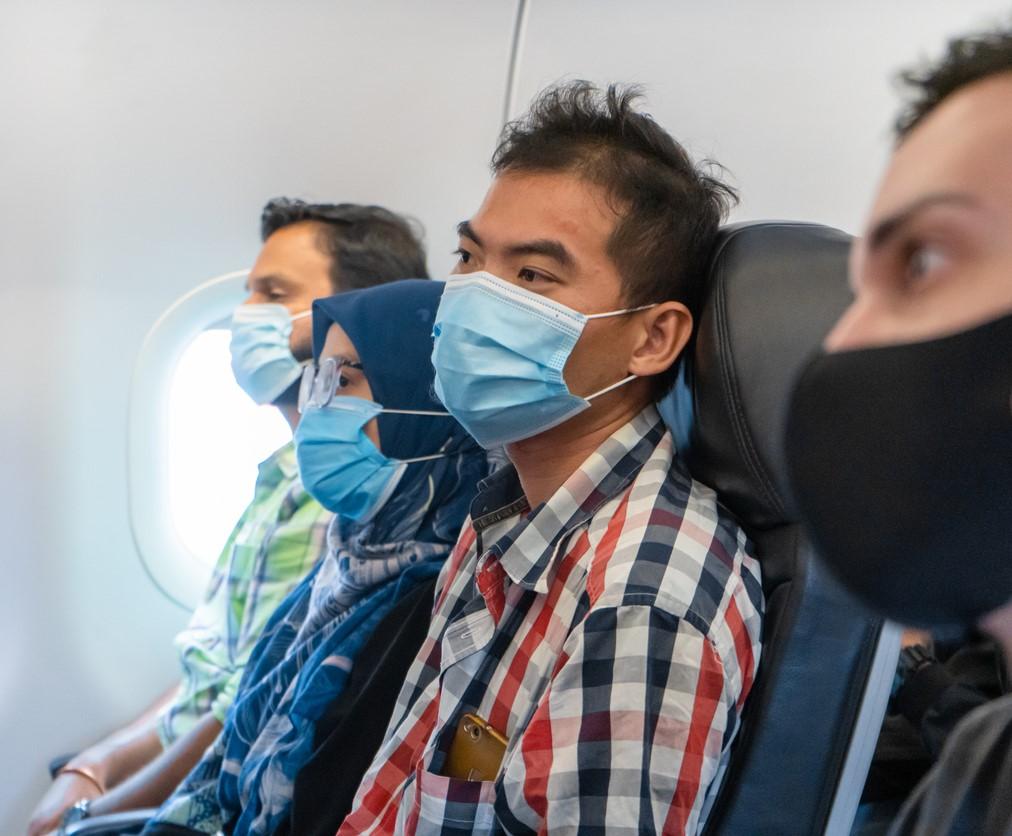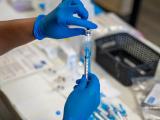Two days ago 1.3 million Americans traveled through US airport security checkpoints, according to the Transportation Security Administration, the highest single day tally of travelers since the COVID-19 pandemic began in the country last March.
The impact of Christmas and New Year's celebrations and travel has yet to be fully seen, but many states are preparing for a surge of infections while trying to simultaneously obtain and distribute the first doses of two approved COVID-19 vaccines.
In hard-hit areas, including Southern California, the Emergency Medical Services Agency is telling paramedics to conserve oxygen because of a shortage and to not bring patients with little chance of survival into hospitals. California has suffered waves of increased COVID-19 infections and is under strict stay-at-home orders, but officials expect an impending post-holiday surge.
Texas, which has also seen multiple waves of virus activity, is also reporting a post-holiday surge. The Texas Tribune, which tracks the outbreak across the state, says 1 in 5 of the state's hospital beds are now being used for COVID-19 patients, a record level. The state's 7-day average test positivity rate for confirmed coronavirus cases has exceeded 20%, doubling the state's "red flag" levels.
Yesterday Texas recorded 15,976 new cases. The US total now stands at 20,981,023 cases, including 356,228 deaths according to Johns Hopkins University. And, as of yesterday, there were 128,210 COVID-19 patients in US hospitals, according to the COVID Tracking Project.
FDA urges adherence to vaccine guidelines
The Food and Drug Administration (FDA) yesterday issued a statement cautioning against suggested changes to FDA-authorized COVID-19 vaccine dosing or schedules. Such changes, the agency warned, are premature.
"We have been following the discussions and news reports about reducing the number of doses, extending the length of time between doses, changing the dose (half-dose), or mixing and matching vaccines in order to immunize more people against COVID-19, " the agency said. "At this time, suggesting changes to the FDA-authorized dosing or schedules of these vaccines is premature and not rooted solidly in the available evidence."
The FDA has granted emergency use authorization (EUA) to two vaccines, made by Pfizer and Moderna, both requiring two doses administered 21 to 28 days apart. The FDA's statement comes of the heels of the United Kingdom announcing it was changing dosing schedules in an effort to vaccinate more people quickly.
The Infectious Diseases Society of America (IDSA) today said it supported the FDA's decision to not change dosing or schedules for the vaccines at this time.
"Such changes at this time carry the risk of both undermining the effectiveness of vaccines and eroding the public trust necessary for successful vaccine uptake. As always, our approach against this pandemic must be founded in science, leadership, funding, collaboration and cooperation," said Barbara D. Alexander, MD, president of IDSA.
States are struggling to distribute the current vaccine stock, with more than two thirds of the 15 million coronavirus vaccines shipped within the United States unused, according to Reuters. In an effort to mobilize vaccination, New York Gov. Andrew Cuomo and Florida Gov. Rick DeSantis said they would penalize hospitals that fail to vaccinate people quickly.
Cuomo said hospitals have 1 week from the vaccine arrival date to distribute vaccines or face a fine.
"I don't want the vaccine in a fridge or a freezer; I want it in somebody's arm," Cuomo said yesterday at a news conference. "If you're not performing this function, it does raise questions about the operating efficiency of the hospital."
DeSantis offered a similar challenge, saying hospitals failing to vaccinate will have their supplies reallocated.
The Centers for Disease Control and Prevention (CDC) COVID Data Tracker shows that a total of 15,418,500 COVID-19 vaccine doses have been distributed in the US, and 4,563,260 people have received their first shot.
Fifth state reports variant case
Georgia's Department of Public Health today confirmed the state had its first variant case of COVID-19, raising the total number of states in the US with B117 to five. The patient is an 18-year-old man with no travel history.
Though the variant is more contagious than the original SARS-CoV-2 strain, it does not appear to cause more severe infections.
Georgia joins Florida, New York, Colorado, and California as states with confirmed variant cases. The B117 variant was first reported in the United Kingdom.
Also today, officials in San Diego County confirmed 28 more variant cases and identified four probable variant cases. New cases have been identified in San Diego, Chula Vista, La Mesa, and Lakeside, officials said. So far, none of the patients infected with the variant strain have died, but one woman required hospitalization.
This week the CDC announced plans to double the virus samples sequenced each week—from 3,000 to more than 6,000—in the United States to detect variants or mutations that could offer clues as to how to virus is spread.






















